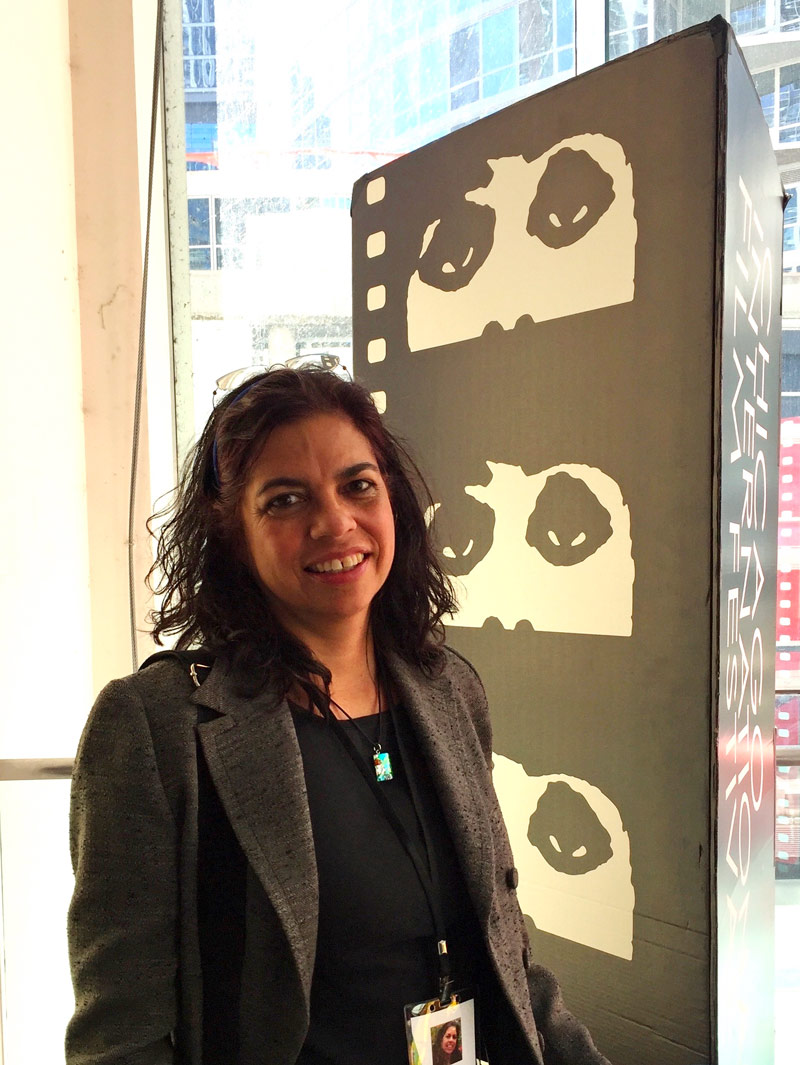 Associate Professor Luisela Alvaray at the Chicago International Film Festival in 2017.
Associate Professor Luisela Alvaray at the Chicago International Film Festival in 2017.The
Chicago International Film Festival is the longest-running competitive film festival in North America, celebrating its 55th year on October 16–27, 2019. Presented by Cinema/Chicago, the festival is dedicated to seeking out the best international films and giving diverse audiences access to world-class cinema.
Associate Professor Luisela Alvaray is a film and media scholar in the
Media and Cinema Studies program, with research focused on transnational film industries, documentary studies and Latin American cinemas. In the past she's had the opportunity to serve as a judge within the documentary category at the Chicago International Film Festival, and she also frequently participates in film screening discussions across the city.
Whether you want to attend the festival or simply broaden your horizons on Netflix, here are a few recommendations from Associate Professor Alvaray to help you start thinking more like a film critic.
Q: What would be your advice to someone who’s never seen an international film? Where would be a good place to start?
Be patient. Sometimes it might take a little while to get used to visuals and rhythms that we typically don’t see in mainstream films. Be open. When we travel through unusual terrains, we might discover wondrous new ways of understanding the world and our own lives. Start with a film whose topic you feel curious about. It does not matter who made it, or where the film was shot. Start with something that connects you to the film.
Q: What makes a “good” film? What things do you look for when you judge a film?
Saying that a film is good or bad is, of course, very subjective. Everyone has an opinion of why you liked a particular film. From a critical standpoint, rather than using such categories, we like to assess the film against different contexts. For instance, how is the film utilizing film language? Is it developing a new way of seeing a particular subject? How relevant is the topic and the filmmaker’s point of view in the context where the film was made, or for other societies at large? Where can we place the film in the context of a particular genre, or a specific film movement, for instance? These are the kinds of questions that we would ask when evaluating a film.
Q: What are your favorite types of films?
Films that offer some depth in the way they depict human experiences, no matter what film genre the filmmaker is using. Films that challenge conventions. Films that find new ways of conveying what we thought we knew.
Q: You encourage your students to attend different film festivals in Chicago. What do students learn from those experiences?
For some students it is the first time they watch non-mainstream films. Some have mentioned their joy and amazement at discovering new crowds and new cultural events that they did not know happened in Chicago. Others have loved the fact that there are after-screening discussions with the filmmakers or people involved with the making of the film they just watched. In every case, it is a way to provide students with new cultural horizons without leaving town.
Also see: